In 1991, just as Eastern Europe began to open up to the West, my family travelled to Hungary, where my family lived for centuries. Along with my paternal grandparents, parents, and cousins from Vienna and Tel Aviv, we spent a week driving through the drizzly Hungarian countryside, our camcorder rolling.
The scenery repeated out the car window: grapes, impoverished towns, hills, and destroyed Jewish cemeteries. Sometimes we stopped to hunt for relatives’ graves. One local man saw us and stomped through the high weeds to tell us, in frantic Hungarian, that his family used to be the caretakers of the cemetery. It was beautiful, he said, until the locals dragged away the headstones to sell.
But the cemetery where most of the Hungarian side of my family has been awaiting Moshiach since at least the early 1800s was not destroyed. For all I know, it’s the only entirely intact Jewish cemetery in all of Hungary. After the Nazis invaded Hungary, my cousin Imre left his labor camp, where all able-bodied Hungarian Jewish men were sent, and went home to Abaújszántó.
There, he learned his mother and sister, who he’d ensured were well-hidden before departing, had been turned in by a neighbor and sent to Auschwitz. Imre understood what was happening across Hungary, and erected a ten foot wall topped with barbed wire around the family’s plots, which included his father, grandparents, great-grandparents, and generations so old the names had worn off.
To visit the site, we entered through a woman’s house, signed a book she maintained of visitors, then climbed over bushes and ducked under branches. Which is how you keep a Jewish cemetery from being destroyed after the Jews are gone.

“Take a picture of me with my great-grandmother,” said my grandmother, posing next to the headstone. She tightened her rain kerchief, wobbling as her New York City heels sunk into the Hungarian mud. No one else in the family has been buried in that cemetery, not even Imre, who dedicated the remainder of his life to keeping the surviving family together, and the memory of those murdered or gone alive.
Imre is buried on Jerusalem’s Mount of Olives, the holiest site for a Jewish burial. His children pay someone to maintain the family burial ground in Hungary while they live open Jewish lives in Jerusalem. He remained dedicated to Orthodox Judaism, but he’d seen what happens to Jewish graves after the community has gone. Maybe he wanted to be closer to God, but maybe he also wanted to be buried in the one location, in the one nation in the world, where his grave wouldn’t be vandalized.
Three years later, my maternal grandfather died, the first of my grandparents to go. He and my grandmother Ethel had plots somewhere on Long Island, probably acquired through a union or bulk backdoor discount. But after retiring to Florida on my grandmother’s teacher’s pension, they changed their minds. They no longer wanted to be dead on Long Island. Now, they would be cremated. Easier, cheaper, and who cared anyway — they’d be dead.
I’d been raised on a banquet of Holocaust stories, and found it shocking that Jews would choose the very same method of post-death disposal as the Nazis. Had my grandparents somehow missed the parallel? Dismissed it as irrelevant?
What happened between purchasing plots in a Jewish cemetery, and deciding to blow away with the wind? Was being cremated their final fuck you to Judaism? They hadn’t raised their kids with religion, preserving only the Jewish elements deemed “cultural” like lighting a menorah, eating Entenmenn’s cake1, and using Yiddish phrases like gei kaken afn yam2.
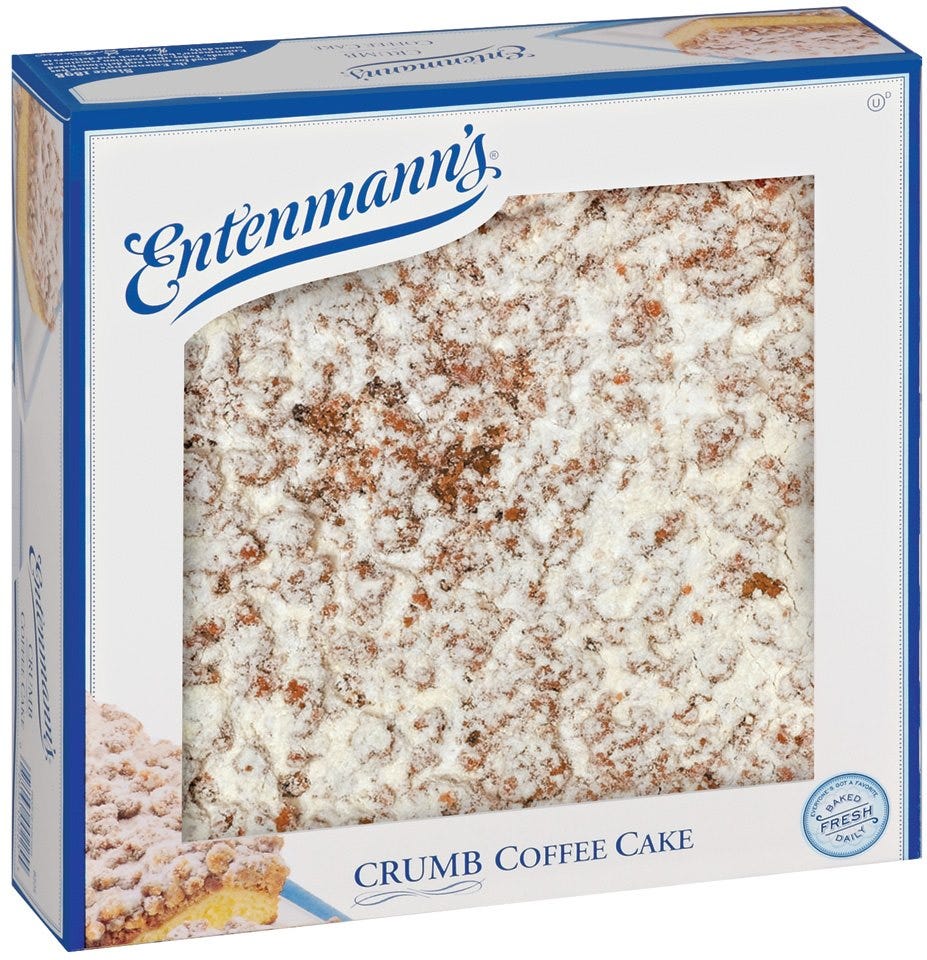
Following the cremation, no one knew what to do with the ashes, so my mother, sister and brother argued about it and then finally divided them in thirds. All three chose methods from varying indigenous ethnicities — anything but Jewish. My grandfather is variously on an altar, sprinkled in Tompkins Square Park, and in a box.
The Schank side of my family briefly lived in the Catskills, working the rocky land to create a Jewish agricultural paradise while starving to death. My cousin Tillie Schenk, dead at 20, is the lone Schenk in the local Jewish cemetery.
Tillie lies with other Jews who died when the Catskills were Jewish. Today, her grave is tended to by the Haredi3 community who inhabits the synagogues, hotels and homes left behind by other Jews.
In the ‘30s, part of the family moved to Lakewood, New Jersey. My great-grandfather, Abraham Schank, is buried in Lakewood’s Jewish cemetery, along with my great-grandmother and my cousin Allie, gone over a decade now. Four generations of Schanks in Lakewood, New Jersey. Allie’s father, my cousin Dick, plans to join his daughter, and then our family’s Lakewood chapter will come to a close. Like the Catskills, Lakewood is now inhabited mostly by Haredi Jews. They’ve shuttered the public high school, overbuilt housing and clogged the roads. Lakewood’s remaining Jews blame the Haredi for destroying the town, causing antisemitism to spike, and forcing other Jews out. But in death, we are all just Jews, and they will care for our graves long after we are gone.
As my grandparents’ generation died, their choices about what to do with their bodies seemed like the direct result of surviving the Holocaust and never, ever discussing it, as though in death they could finally let out a howl from the mountaintop. The Jewish way of death is marked by so much murder and forced migration, many would rather talk about something more pleasant than reckon with the transience of Jewish life in America.
For example: my family. A marker in Belarus indicates where my great-grandmother’s brother Aron, and two older sisters, together with their families were shot by the Einzatzgruppen on a warm day in August, 1941, then buried with 555 other Jews in a mass grave.
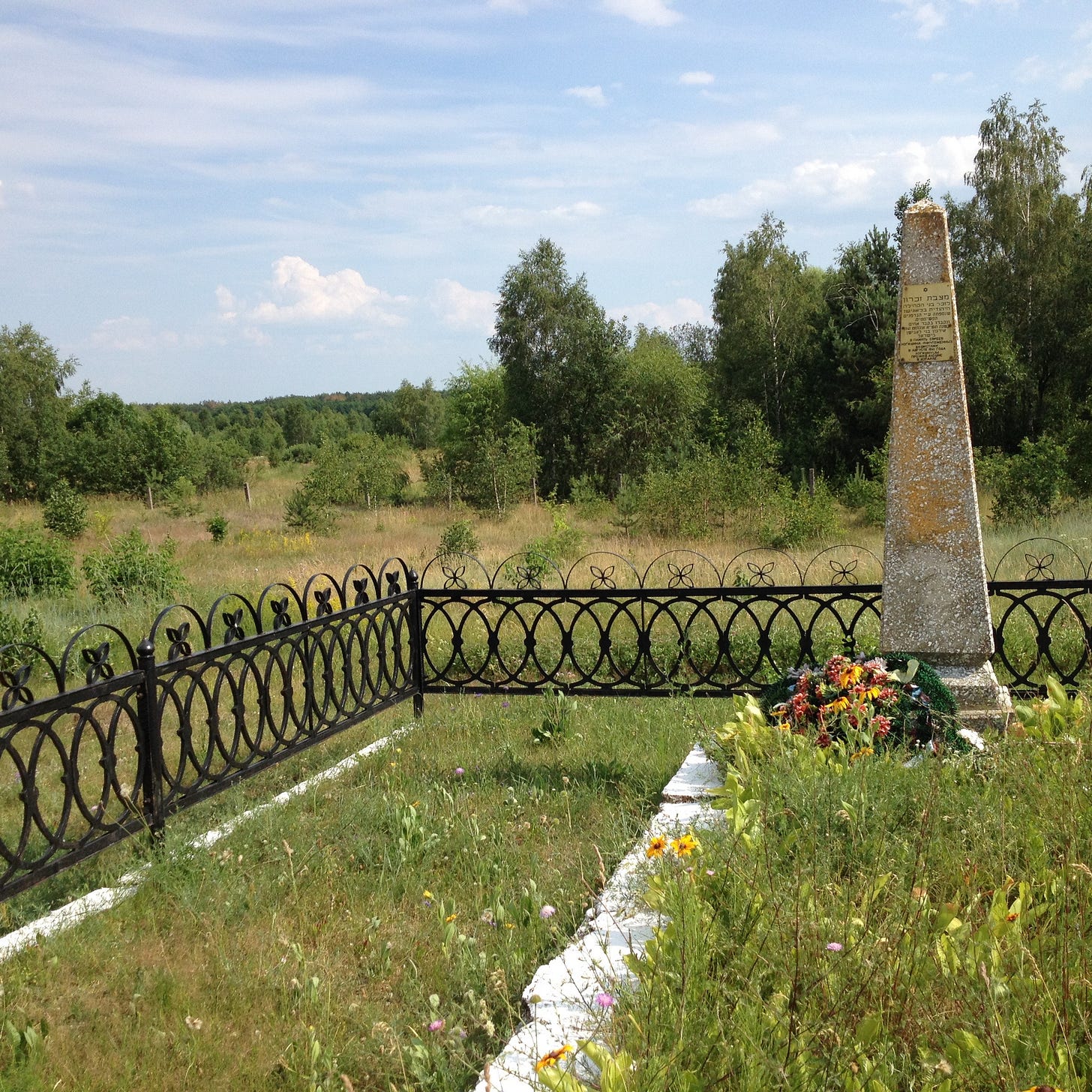
Other family has chosen to be buried on the Mount of Olives. My survivor cousin George’s father is buried there. Meanwhile, George’s mother is buried outside of Boston, where her descendants still reside. “I hate planes,” she used to joke about her decision. But maybe she didn’t want to be buried in Israel, which was not her home. She certainly had no desire to be mailed back to Abaújszántó, Hungary.
My cousin Misha, who survived Auschwitz at age 16, lies in a Jewish cemetery in Paris. His non-Jewish wife is buried elsewhere. After the Holocaust, my cousin declared himself an atheist, but Misha was also an ardent supporter of Israel, and active with the Shoah Foundation. He raised his children without religious Judaism. In death, he made a different choice.
Not even my orthodox Hungarian great-grandparents wanted to be shipped to Hungary to await Moshiach. They’re buried near Aqueduct Race Track, which was a lot more serene when they chose it as their final resting place. When they bought the plots, they probably assumed America was the future, and they’d be surrounded by family. But their daughters made a different decisions.
I remember the day Margie called to say she and Mac had sold the plots near her parents. They were going to be buried in Florida, because what difference did it make?
“Who cares,” Margie said. “I’ll be dead.”
Today, Margie and Mac lie in a Jewish cemetery not far from the Rustic Inn, a crab restaurant they always took us to when we visited. My grandparents didn’t keep kosher outside of the house, but bringing your Jewish grandchildren to a crab restaurant, followed by a slice of Mississippi Mud Pie, was next level assimilation.

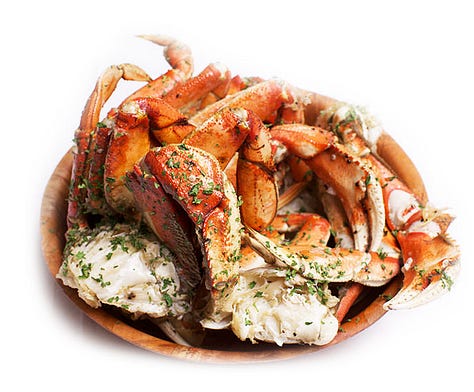
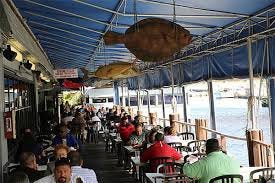
Margie and Mac lie next to a whole bunch of other Jewish New York alte kakers who retired to Florida in the 1980s, may their memories be a blessing because I’ll probably never visit their headstones again.
When Eastern and Central European Jews first came to America, the first thing they did was purchase plots. It makes logical sense: when Jews come to a new land, we need a Jewish place to come together as a community, a safe place to stick a Torah, and a Jewish burial ground in case Moshiach comes. Also, who wants to be buried with strangers?
My great-grandmother Eva Lutsky Schank, was a member joined the Ladies’ Auxilliary of her shtetl’s landsmanschaft — a mutual aid society. The first thing the landsmanschaften usually did as a collective? They bought Jewish cemetery plots, and mapped out who would go where. For many Jews, the cemetery was the only open green space available if they wanted to escape the crowded, tubercular Lower East Side. So when they wanted to get out of the city and breathe fresh air, they packed picnic blankets and baskets and relaxed in a mostly-empty Jewish cemetery in Queens.
But now, what will happen to Jewish cemeteries in America? Will they, too, become another set of abandoned fields? Or have Jews in America already given up on the Jewish way of death? We skip from town to town, leaving graves strewn from Canada to Florida, or disappear into the wind, just as the Nazis wanted.
My almost-90-year-old cousin Joan doesn’t know where she’ll be buried. She and her husband have plots in Florida with her parents and brother. But does she want to spend eternity in Florida with her family of origin?
“Maybe,” she said, “I’ll be cremated and we can all eat Indian food and you can toss me in the Ganges.”
The answer to “where will you be buried” is not simple for Jews. It is an act of optimism or pessimism, of envisioning a future when your headstone might be smashed to bits, or cared for by Jews an ocean away. Whenever I visit an old New England cemetery, I feel a pang for all that Jews have lost. We have no single place to learn the story of our family — who died young, who lived a long life, and who they were as people.
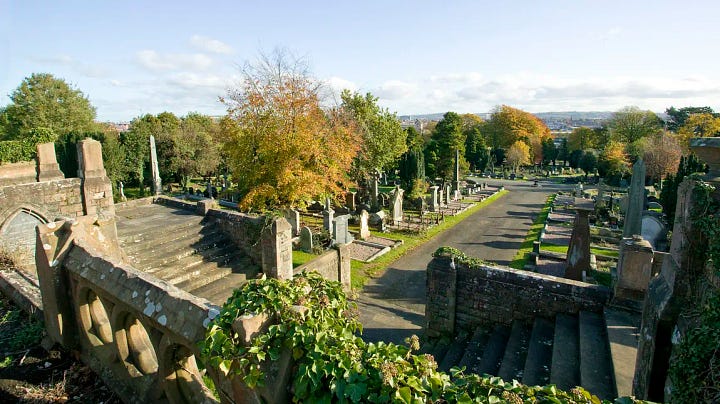
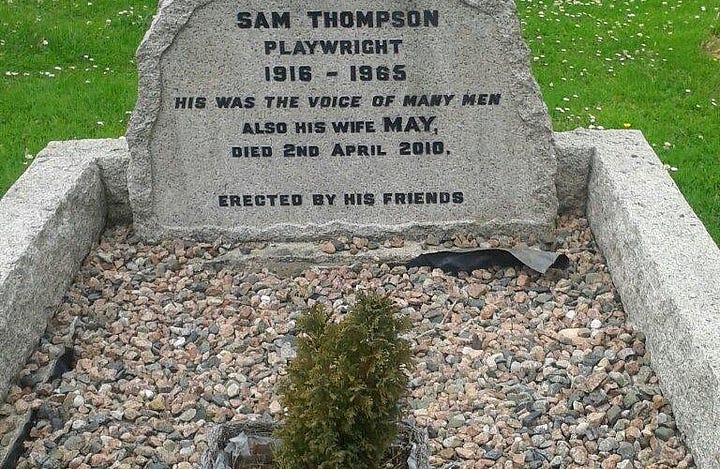
In Hungary, the family headstones included symbolic carvings or words attesting to individual characteristics of the person below. They were kind, caring, generous, and studious. They were learned men and holy women who performed tzadaka and mitzvot without even thinking about it.
But I am cut off from that past. The current generation of elder Jews seems phenomenally disinterested in their burial locations, as their parents were before them. Perhaps they always knew what American Jews are just beginning to learn: it doesn’t matter where you’re buried. If you’re a Jew, your burial place is probably only temporary. Even if you lie in Florida. Some day, Florida will no longer be Jewish, and no one will care, except a few old Americans who mumble about eating crab at the Rustic Inn.
After my maternal grandparents were cremated, my mother handed me the paperwork for their plots, but I never transferred ownership. Did I want to be dead on Long Island? Maybe, if our family was going to live out the rest of our days in New York. But would our tombstones join those of so many of my relatives, just another gravestone scattered across the world in places Jews used to live? Who will visit me? Who will leave a rock and remember my kindness, studiousness or good deeds? Who will touch my headstone and exclaim, “Look, my great-grandmother and I have the same name!”?
So, I’d like to start a new family burial plot that will always be Jewish, in the one country in the world where Jews can hope to have continuity in our story. Come visit. Bring a picnic. Leave a stone. Enjoy the sunshine, the silence and the continuity of the Jewish story.
Yiddish for “go shit in the ocean.” Since no one in Russia lived near an ocean, it was translated by my family as “go shit in a lake,” which somehow sounds more disgusting.



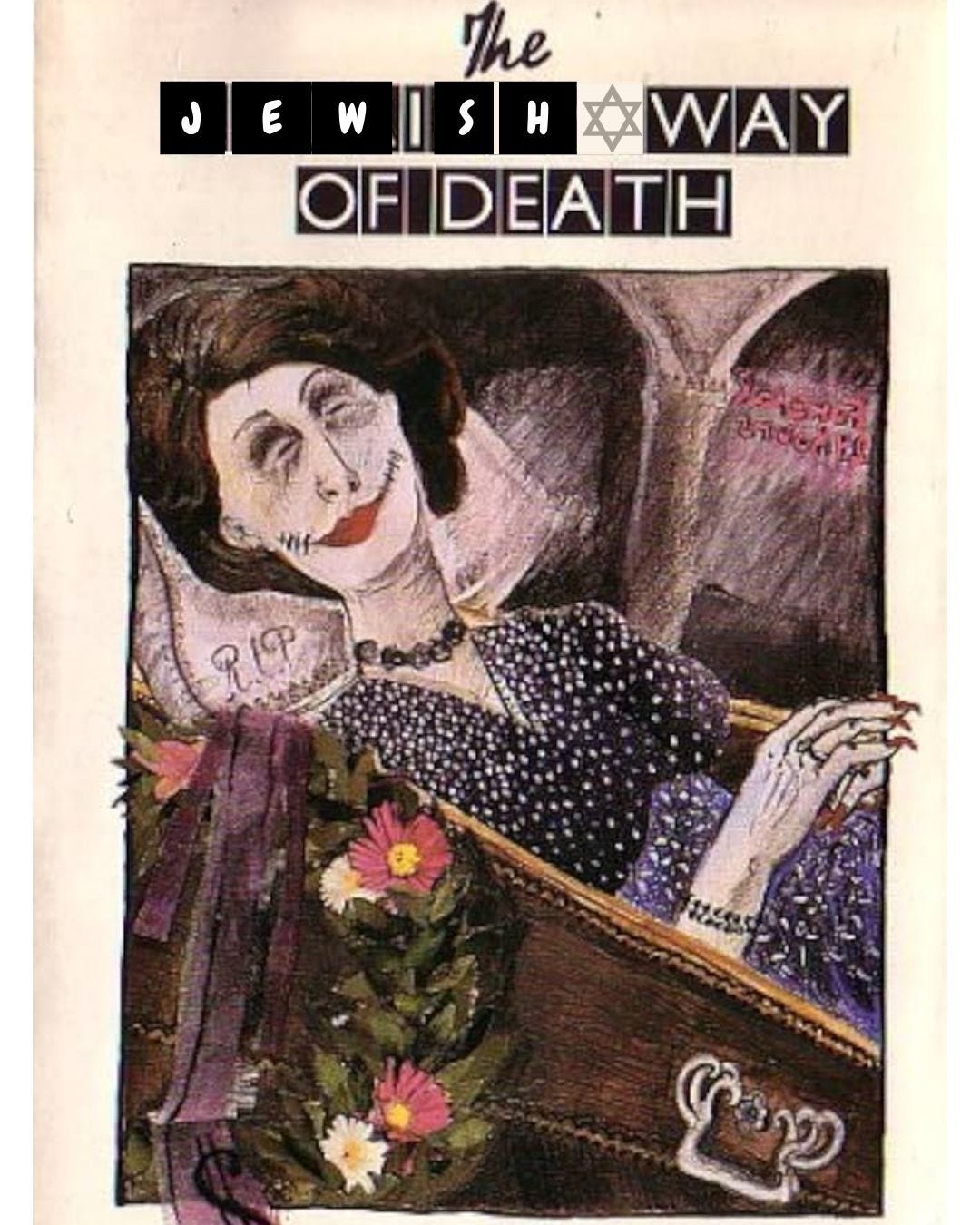
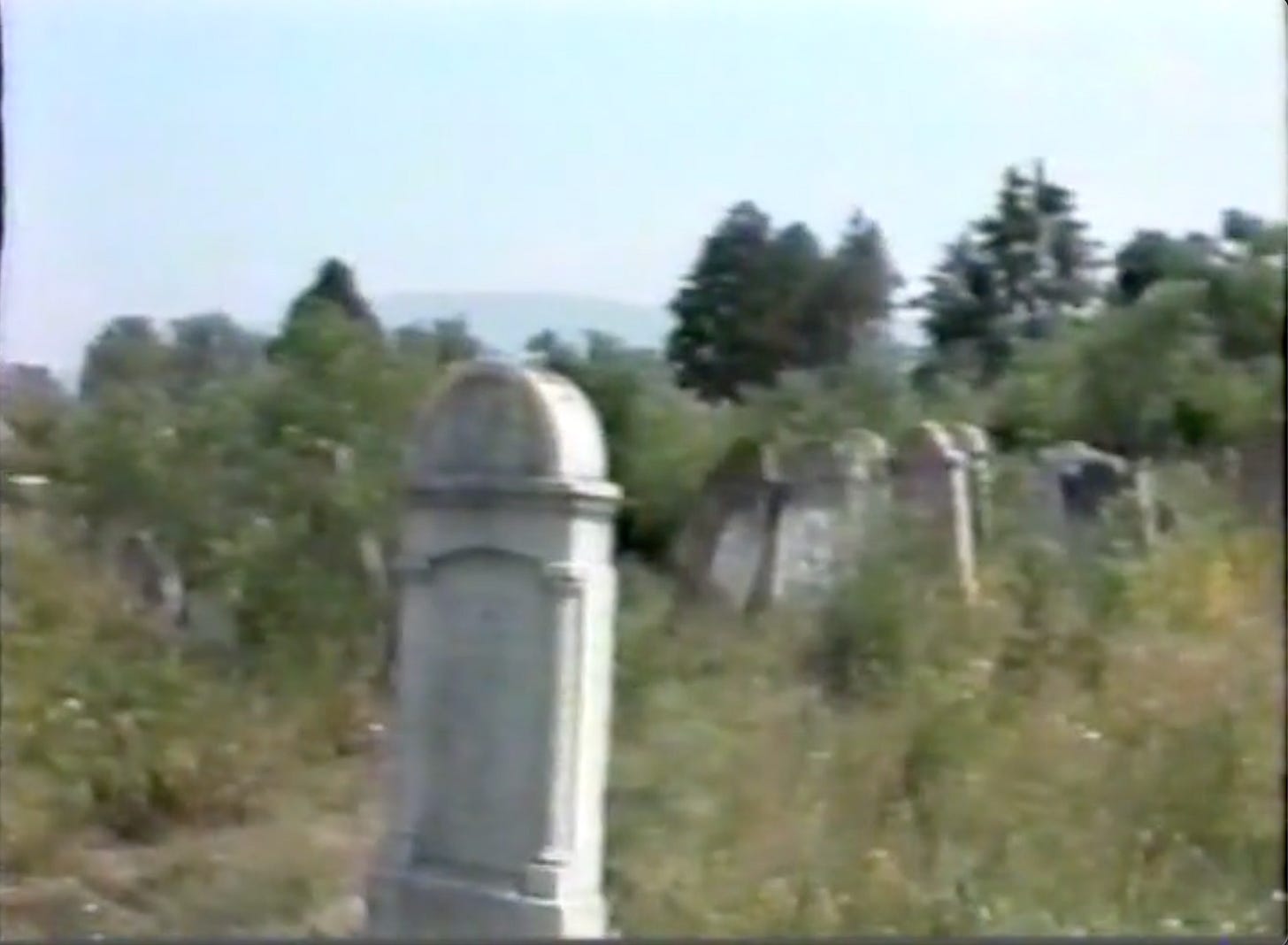
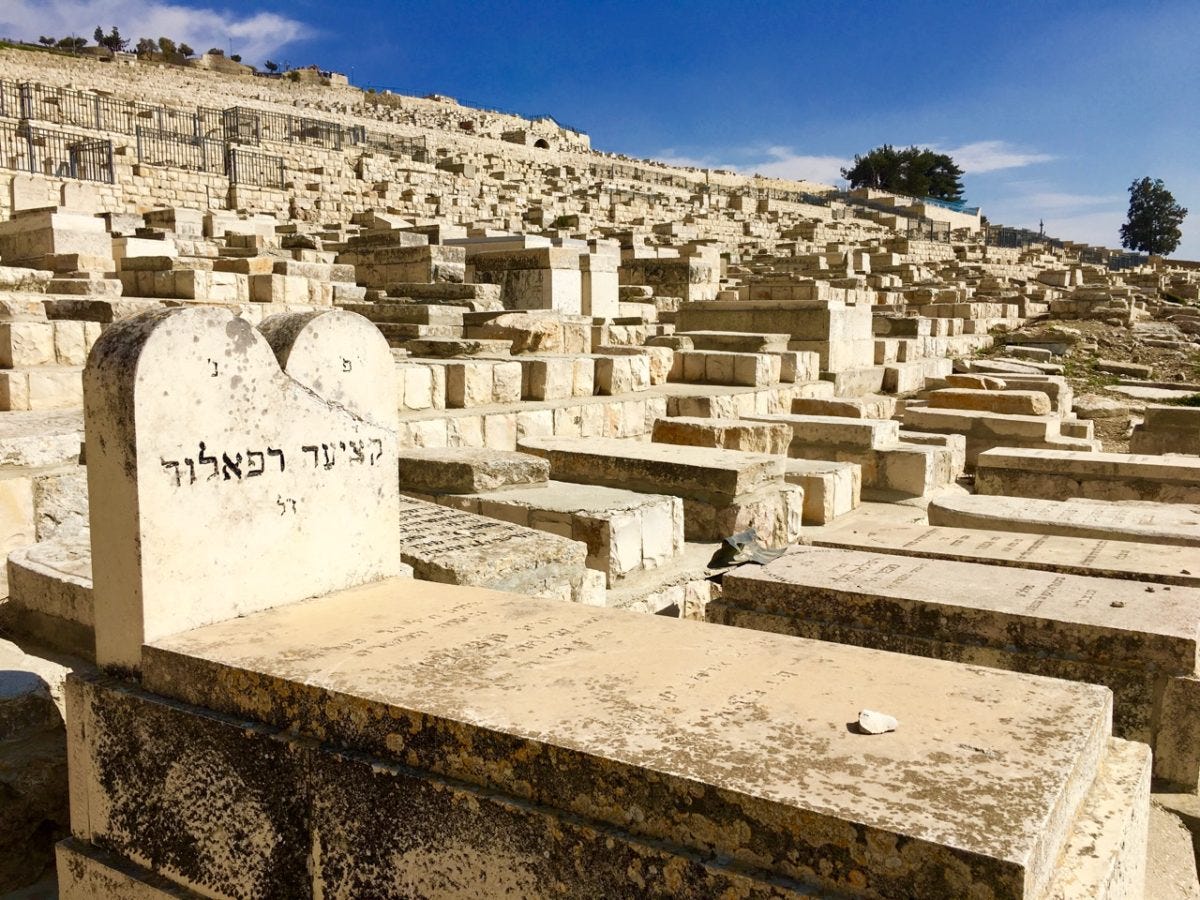
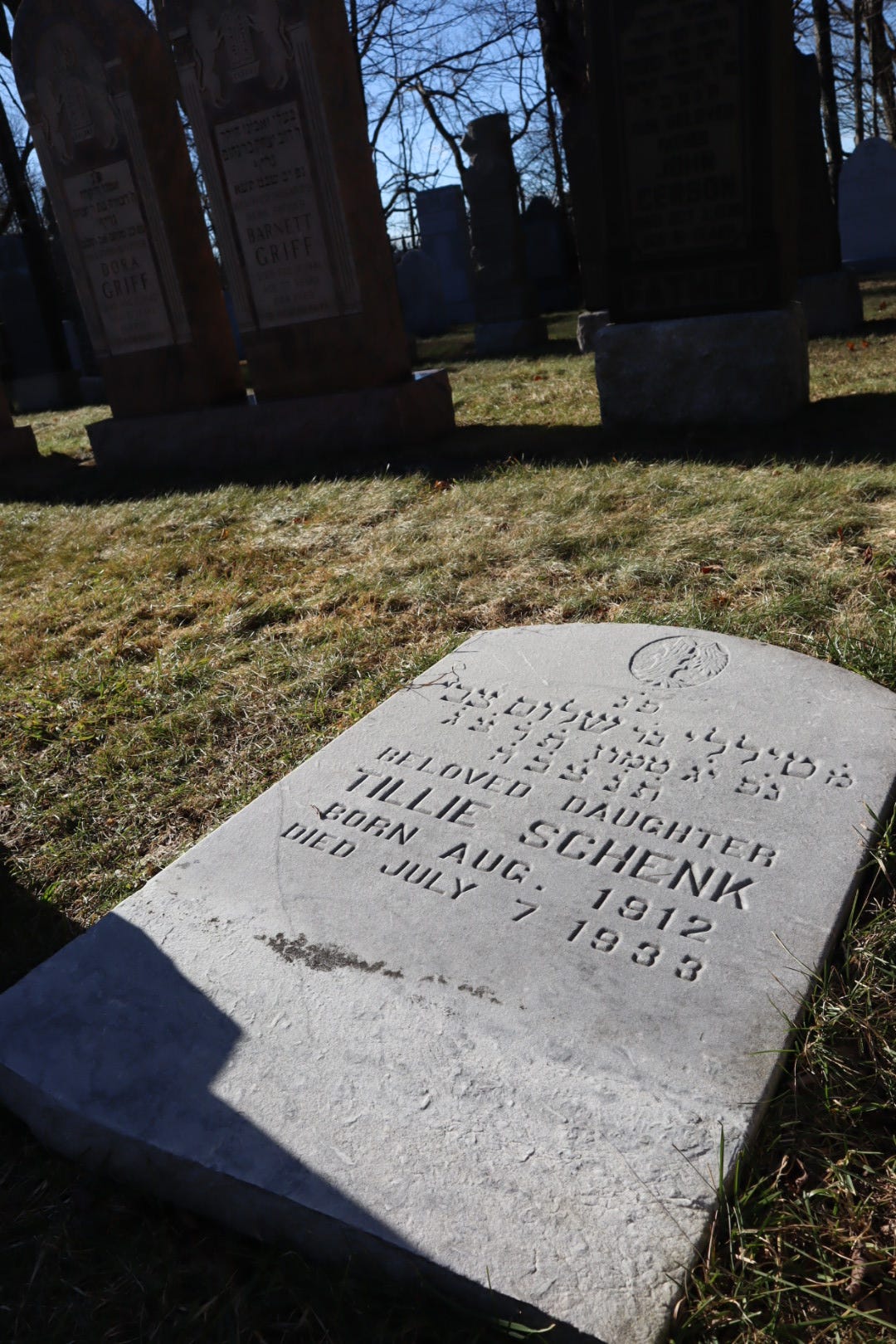
My parents are buried in that vast necropolis on Long Island, where the cemeteries go on for miles, and you need to have a map to find the gravesite, laid out in even blocks like city streets. My mother had bought a double stone when my father died in 1970, in an area of the cemetery reserved for New York “landsmen” who had been born in Kuzmin, the small village near Kiev where my father and his siblings were born, and are all now buried. There is a monument among the graves to the murdered people of Kuzmin, who had perished along with the town when the Nazi’s invaded Ukraine. Along with the double stone, my mother had purchased a “perpetual care” contract with the cemetery, which was rarely honored, as each time we went to visit my father’s grave, it was overgrown, and I’d have to go into the office and complain. She has been buried next to him under that double stone since 1994, and now that I live too far to ever visit again, I doubt they are keeping the contract. My brother is buried in a nearby cemetery, also with a double stone, but when his wife died a few years ago, she was buried in Florida.
So how was the crab, dear kosher-keeping lady?